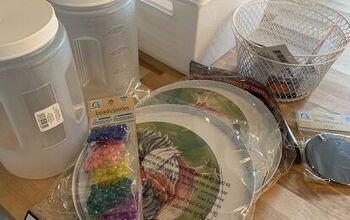10 Rules of Financial Minimalism That Changed My Life

These are some principles of financial minimalism that completely changed my life and hopefully, they can change yours too. Financial minimalism involves changing your mindset about your money and the way you live. Below are the 10 rules of financial minimalism that changed my life.
1. Everything popular is wrong.
This is just kind of my general outlook on life. I believe that if everybody's doing the same thing like going to college, getting in debt, trying to get a higher paying job so that they get a bigger house and a bigger car and more expensive clothes, then I'm just going to see what happens if I just do the exact opposite (within reason).
2. Less is not laziness
Less is not laziness. Financial minimalism is about freedom, not laziness. As a culture we kind of have that as a badge of honor where we're working 80 hours a week, or always on the phone, answering emails 15 times a day, constantly trying to do more and more stuff, get a bigger and bigger raise. A lot of times we'll confuse activity with productivity and there's a big difference.
3. Use the 80/20 rule
As a financial minimalist, I'm trying to use the 80/20 rule as much as I possibly can in almost every area of my life. When it comes to clothing, what 20% of clothes do I wear all the time and can I just get rid of that other 80% that I don't wear?
When it comes to finances and my business and earning money, what's 20% of the actions or people or time that leads to 80% of the headaches? Can I get rid of those?
4. Listen to Nike
Oftentimes we will let excuses stop us from taking action. But when it comes to a lot of the bigger things in life, sometimes we just need to take action. We need to take a step. Sometimes you have to just do it.
5. Ask for forgiveness, not permission, as long as it won't hurt other people
Especially in minimalism, you're going to live a very different lifestyle than most people around you. As a financial minimalist, you're probably going to be very frugal. You might not go out to eat as much. Sell your new car and have an older car. These are things that won't seem normal to other people. Instead of trying to fit in with everybody around you and waiting until everybody understands, you have to do what's right for you.
6. Use your strengths
Use your strengths and avoid your weaknesses. It is way more efficient to work on things that you're good at and all that other stuff that you kind of suck at, just try to avoid it.
All those things that I suck at or I just don't want to do, I try to outsource those to other people so I can focus on the things that I'm good at that make progress in my life.
7. Build wealth over income
Most people focus on scaling their income and while that is important as a financial minimalist, I kind of have a different approach to this and that is to build wealth.
Instead of trying to build up huge amounts of money so that you can survive off of that money and slowly eat away at it, as a financial minimalist, we more shoot towards building different streams of income so we can have a lot more freedom and build a lot more wealth a lot sooner.
8. Stress can be good
Stress is kind of a good thing. Don't get me wrong, I hate stress. That's one of the things that originally got me into minimalism. One of the biggest benefits of financial minimalism is having no financial stress, or at least very low financial stress after putting in some time.
However, stress is super important as it's what forces us to grow. For instance, if we avoid destructive criticism and people tearing us down, that is a good thing. But if we avoid all criticism, that's a bad thing because it's from that and taking constructive criticism that we grow and we get better at things.
9. Things in excess become their opposite
You eat a half gallon and you're going to be sick. You have a few drinks, you can have a good time. If you have a lot of drinks, you're going to regret it and just promise yourself that you're never going to drink again.
The same thing is true with our financial life. A reasonable amount of pushing ourselves and growing and building our income is good. But if that is your life's goal, then you're going to eventually have problems.
If you don't have anything else in your life like hobbies and things to focus on and families, then it doesn't matter how successful you are at one thing. A lot of times you're going to feel empty when you're not doing that thing and you just have no choice but to continually run on the treadmill.
Even if it's a good thing, you can get a little bit too over the top with it.
10. Never stop learning
This is something that is the difference between people who progress in their life and people who get caught in the cycle of the nine-to-five doing kind of the common American dream thing. It doesn't mean that they're lazy, a lot of times it just means that they stay in their comfort zone.
Pushing yourself outside of your comfort zone and continuing to progress and try to better yourself is, for me, what has led to most of the happiness and improvement that I've ever had in my life.
Rules of financial minimalism
If you're someone who's trying to turn their finances around and learn all of the basics of financial minimalism, never stop learning. Financial minimalism can lead to freedom and work you love.
For more ideas, see my previous post on 10 "normal" things I don't do as a financial minimalist.
What steps are you taking to become a financial minimalist? Comment below, we love to hear from you!





















Comments
Join the conversation